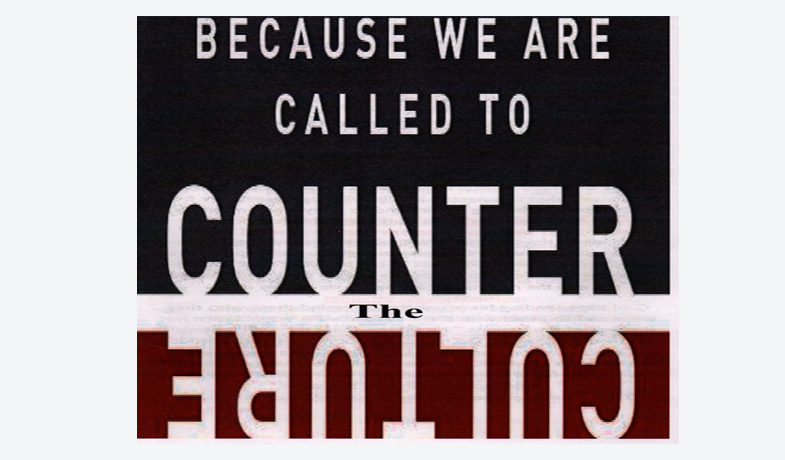Christian Life, the Counter-Culture
Matthew 5:1–16
The Sermon on the Mount is probably the best-known part of the teaching of Jesus, though arguably it is the least understood, and certainly it is the least obeyed. It is the nearest thing to a manifesto that he ever uttered, for it is his own description of what he wanted his followers to be and to do. Some say no two words sum up its intention better or indicate more clearly its challenge to the modern world, than the expression,
”Christian Counter-Culture”.
The essential theme of the whole Bible from beginning to end is that God’s historical purpose is to call out a people for himself; that this people is a ‘holy’ people, set apart from the world to belong to him and to obey him; and to be ‘different’ in all its outlook and behavior.
Throughout the centuries which followed the giving of the Ten Commandments, which God gave as a guide, the people of Israel kept forgetting their uniqueness as the people of God. They kept becoming assimilated to the people around them: They mingled with the nations and learned to do as they did.
God kept sending his prophets to remind them who they were and to plead with them to follow his way. “Learn not the way of the nations,” he said to them through Jeremiah, and through Ezekiel, Do not defile yourselves with the idols of Egypt; I am the Lord your God. But God’s people would not listen to his voice, and the specific reason given why his judgment fell first upon Israel and then nearly 150 years later upon Judah was the same:
They had become just like the world around them.
The Sermon on the Mount is a reminder, a guide as to how those who say they are committed to Jesus, and are in the kingdom, should live their lives.
There is no single paragraph of the Sermon on the Mount in which this contrast between Christian and non-Christian standards is not drawn. The kingdom is not yet here in its fullness, but all its demands are here now, and his blessings are heaped upon those that pertain to it.
The followers of Jesus are to be different, different from both the nominal church and the secular world, different from both the religious and the irreligious. Here is a Christian value-system, ethical standard, religious devotion, attitude to money, ambition, life-style and network of relationships—all of which are totally at variance with those of the non-Christian world. And this Christian counter-culture is the life of the kingdom of God.
The Kingdom of Heaven and the Blessed
The word blessed has more of a connotation of being approved by God. He who is approved by God will be happy, but it does not follow that he who is happy is approved by God.
Who’s approval are we seeking? Are we out primarily to please friends, family, colleagues, to be the best known and best loved, or do we want above all, above everything else, to please God?
The things promised in these beatitudes are not arbitrary rewards, but they grow naturally, or supernaturally, out of the character described. There’s a connection between the condition and the fulfillment. The promise and the fulfillment are linked.
The Poor in Spirit
Matthew 5:3 Blessed are the poor in spirit, for theirs is the kingdom of heaven.
Poverty of spirit is the conscious acknowledgement of un-worth before God. It is the deepest form of repentance. Psalm 51 says, The sacrifices of the Lord are a broken spirit; a broken and a contrite heart, O Lord, you will not despise.
These who are poor in spirit have submitted to the kingdom’s obligations, namely the total reign of God, and therefore, they enjoy its privileges. God is far more interested in what we are than in what we do. We have a world today that puts the emphasis primarily upon what you have. Blessed are those that have wealth and etc.
The Mourners
Blessed are those who mourn, for they will be comforted.
Two types of mourning are in view here. One is, the mourning over personal sin. Secondly, there is a mourning over sins and injustices at large.
The world today does not want to mourn or weep. The world does all it can to keep from feeling any pain. We have our psychologists who will numb our neurosis. We have our counselors who will absolve us of all guilt. We have our doctors to sedate our pain. We have our insurance agents to take away our worries. And even at death we have the mortuary to somehow try to beautify death for us.
When is the last time we mourned over our personal sin, or the sins taking place all around us?
Does our lifestyle counter that of the World?

